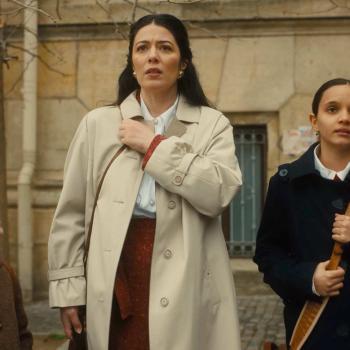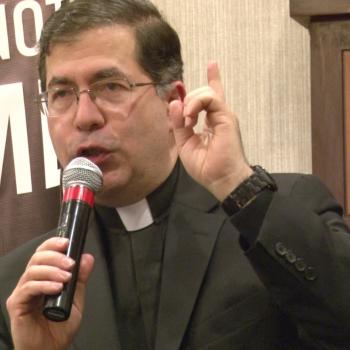
There was one window, but, because it was situated in the basement, there wasn’t much light shining through. Was it morning or evening? Another day had passed in quarantine. Ever since my daughter tested positive for COVID-19, my partner and I realized we were in store for a whole new adventure. This meant that after our eight-year-old daughter's state mandated 10 days of quarantine, whichever one of us stayed with her would also have to be isolated for 10 days. Seeing as my partner was nursing, I ended up heading downstairs.
I thought I was prepared. After all, nearly three weeks total without much parental responsibilities, and with nothing but books and delivered meals, sounded like a scholar’s dream, no? But as someone who has long struggled with depression, I wasn’t prepared for the darkness; the distance, the disruption, the loneliness. I wouldn’t have been able to tell night from day had my devices not been connected to wi-fi, but the wi-fi was weak downstairs and, as the days grew long and faded into each other, I found myself imagining my ancestors in similar circumstances of confinement.
A cave. A study hall. A bunker. A pit. Even a fish.
When the Biblical prophet Jonah tried to flee from God’s mission, first on the basement of a ship and then in the belly of a large fish, could he even see his surroundings? Like a basement, the darkness in the underbelly of a fish must have been fierce. But the Torah teaches that it was in this environment that Jonah prayed. "In my distress I called to the LORD, and he answered me," said Jonah, "From deep in the realm of the dead I called for help, and you listened to my cry" (Jonah 2:2). What spiritual resistance, I thought. "You answered me," Jonah said, while still in isolation, for all intents and purposes unanswered by God. But Jonah claimed the opposite truth. Jonah's faith persevered. Could my own faith last?
When Joseph of the Bible was cast into the pit by his brothers, and later into the cellar by Potiphar, did he still dream then? Did he still have high hopes for his future, as he envisioned it, while a brazen youth? It seems that he remained steadfast, interpreting the baker's dream, and simply going wherever God sent him. How might I tap into Joseph's spiritual resolve during this time away from my children and family? How might I remain hopeful and creative as Joseph seemed to remain?
I saw Rabbi Shimon of the Talmud, as I peered into my past.
As the Roman governor sought Rabbi Shimon’s demise, he hid first in the study hall with his son, Rabbi Elazar, where his wife would bring them bread and water. Thankfully, my own partner was able to diversify the bread and water menu while leaving food by the stairs. But, when Rabbi Shimon grew fearful of his wife’s fate, he fled with his son to a cave in northern Israel. A carob tree miraculously appeared by the cave’s opening along with a spring of fresh water for their physical nourishment. In the cave, they would wear clothes only when praying, so as not to wear them out, and they would remain buried in sand while studying Torah—out of a sense of modesty and reverent devotion.
I tried to imagine their routine in the cave. Where did they keep their clothes? Did they manage to keep their sand piles in place, or did they dig anew every day to give themselves some type of physical exercise? I used one corner of the basement for exercise, another for prayer, one for work and rest, trying to differentiate my surroundings.
It was like this for twelve years for Rabbi Shimon and his son, with only one visitor -- Elijah the prophet. Finally, when the governor died the two emerged, and they noticed men plowing the soil and planting seeds. Rabbi Shimon was aghast at these earthly pursuits and, wherever they looked, fire would beam from their eyes. A heavenly voice cried out: “Have you emerged to destroy My world? Go back to your cave.” (BT Shabbat 33b-34a). And there he returned for another 12 months before emerging again, finally able to see the beauty in the world.
I so yearned to leave the basement and have my chance to revisit the beauty of the world. “I wouldn't squander the opportunity,” I said to God. But, as a grandchild of Holocaust survivors, I also know there are many stories that do not have such hopeful endings.
When Jews hid in bunkers, in cellars, in gutters and ghettos, rather than face German Nazi brutality during World War II, was their sheer will to defy their oppressors a form of a fiery laser like Rabbi Shimon's? Was it born of a simple desire to live another day? “From the depths, I call to you, God,” cries the Psalmist (Psalm 130:1). When one is in a moment of spiritual despair, there is no oasis. There is no escape. But the Jewish mystical tradition fervently asserts that God dwells there with us, in our distress. “I will be with him in distress,” the Psalmist writes of God’s loving devotion (Psalm 91:15). Not a fixer, but a partner to sit with while in the waiting room awaiting the news.
And so, I traveled toward my ancestors like the midrash, the rabbinic legends, offers. The Psalmist says, “I raise my eyes to the mountains, from where will my help come?” (Psalm 121:1), but the sages of the midrash tell us we can read the Hebrew word mountains also as parents (the two words distinguished by just a vowel in the Hebrew). From where will my strength come? My family history; my people's perseverance.
The darkness that surrounded ancient Egypt during the ten plagues was said to be a physical, thick darkness that permeated all of the land, save the Israelite homes. There, as the angel of death passed over their homes marked with lamb’s blood, they were instructed to keep a different type of quarantine--to not leave their homes while death traveled by. I realized staying alone was what was required of me, religiously mandated, even. Saving life trumps all else, and the possibility of carrying an infectious virus was serious enough to isolate. And yet, the darkness and despair crept into my crevices and insides. Thankfully, these stories did too, bringing the possibility that light will come, even if I could not see it immediately.
As I prayed the morning prayers, and came to the prayer where we recite the Exodus story of the splitting of the sea, I wondered: Was it dark or were there torches lighting the way? The midrash teaches that one complained of the mud on the bottom of the sea floor. At the climax of redemption, the rabbis imagine Jews kvetching about the schmutz on their sandals. Their teaching thundered through the millennia: There is what to be grateful for and what to mourn--always. How dark was the ancient temple before the tiny canister of oil was discovered, invoking the holiday of Hanukkah? How piercing must the hidden light have been from creation, which was said to have accompanied the world’s beginning?
When I finally emerged from quarantine, I said the prayer from the daily amidah, the standing prayer recited by Jews three times daily, with greater intention. God is referred to as one who enlivens the dead. Far from dead, but close to spiritual exhaustion, I appreciated these words in new light. The Jewish people have survived many a pandemic and many moments throughout their perilous, redemptive history that required living in non-ideal quarters, to say the least. My circumstances were not nearly as bleak as theirs, but nineteen days apart from my children and partner took their toll on me. And so, when a friend jokingly asked me, “Did you emerge with fire in your eyes from your basement, like Rabbi Shimon of the cave?”, I felt, in a way, like I had. No, I was not burning the world with my judging glare, but I was seeing it with a new lens and perspective; one that filled me with gratitude for every waking moment of life.
---
Avram Mlotek is a rabbi, cantor, writer and actor. He is a co-founder of Base and recently authored Why Jews Do That or 30 Questions Your Rabbi Never Answered. Instagram at @avrammlotek and Twitter on @RabbiAvMlotek. www.avrammlotek.com
2/23/2021 2:37:17 PM




